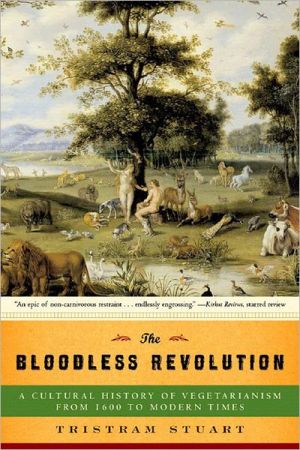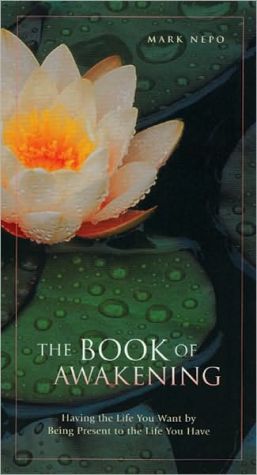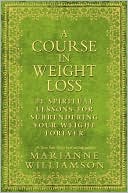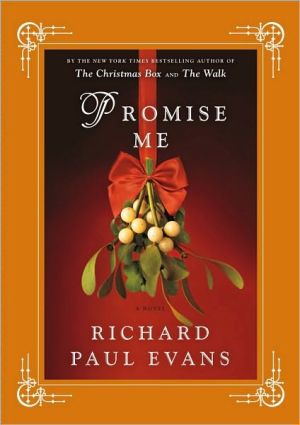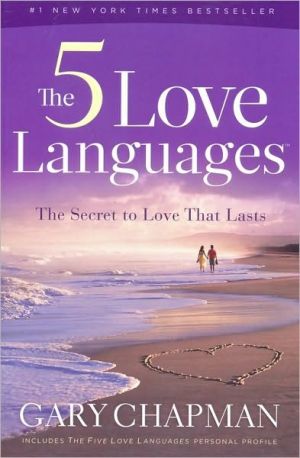The Bloodless Revolution: A Cultural History of Vegetarianism from 1600 to Modern Times
Hailed by critics on both sides of the Atlantic, The Bloodless Revolution is a comprehensive history of vegetarianism, “draw[ing] the different strands of the subject together in a way that has never been done before” (Keith Thomas, author of Man and the Natural World).
Search in google:
“Magnificently detailed and wide-ranging.”—Steven Shapin, The New Yorker The Washington Post - Mark Kurlansky Tristram Stuart's thought-provoking book is not a global history of this taboo. Instead, it revolves around the vegetarian movement that began in 17th-century England -- the name first came into use in the 1840s -- and that remains strong today. But there is nothing narrow about the author's focus. Both scholarly and entertaining, The Bloodless Revolution is a huge feast of ideas -- ideas from India and France and America, from ancient Greece and Thoreau and Emerson, from Rousseau, Hobbes, the Kabbalah, the Old Testament, Descartes and Darwin, to name just a few of the better-known sources that weigh in on the meatless diet.
List of Illustrations ixAcknowledgements xvIntroduction xviiGrass RootsBushell's Bushel, Bacon's Bacon and The Great Instauration 3John Robins: The Shakers' God 15Roger Crab: Levelling the Food Chain 26Pythagoras and the Sages of India 39'This proud and troublesome Thing, called Man': Thomas Tryon, the Brahmin of Britain 60John Evelyn: Salvation in a Salad 78The Kabbala Stripped Naked 89Men should be Friends even to Brute Beasts: Isaac Newton and the Origins of Pagan Theology 97Atheists, Deists and the Turkish Spy 115Meatless MedicineDieting with Dr Descartes 131Tooth and Nail: Pierre Gassendi and the Human Appendix 138The Mitre and the Microscope: Philippe Hecquet's Catholic Fast Food 151Dr Cheyne's Sensible Diet 163Clarissa's Calories 181Rousseau and the Bosoms of Nature 194The Counter-Vegetarian Mascot: Pope's Happy Lamb 215Antonio Cocchi and the Cure for Scurvy 227The Sparing Diet: Scotland's Vegetarian Dynasty 236Romantic DinnersDiet and Diplomacy: EatingBeef in the Land of the Holy Cow 259John Zephaniah Holwell: Voltaire's Hindu Prophet 275The Cry of Nature: Killing in the Name of Animal Rights in the French Revolution 295The Marquis de Valady faces the Guillotine 313Bloodless Brothers 331John 'Walking' Stewart and the Utility of Death 347To Kill a Cat: Joseph Ritson's Politics of Atheism 361Shelley and The Return to Nature 372The Malthusian Tragedy: Feeding the World 399Epilogue. Vegetarianism and the Politics of Ecology: Thoreau, Gandhi and Hitler 418Abbreviations 448Bibliography 450Notes 518Index 608
\ Mark KurlanskyTristram Stuart's thought-provoking book is not a global history of this taboo. Instead, it revolves around the vegetarian movement that began in 17th-century England -- the name first came into use in the 1840s -- and that remains strong today. But there is nothing narrow about the author's focus. Both scholarly and entertaining, The Bloodless Revolution is a huge feast of ideas -- ideas from India and France and America, from ancient Greece and Thoreau and Emerson, from Rousseau, Hobbes, the Kabbalah, the Old Testament, Descartes and Darwin, to name just a few of the better-known sources that weigh in on the meatless diet.\ — The Washington Post\ \ \ \ \ Publishers WeeklyThe word "vegetarian" wasn't coined until the 1840s, but Stuart's magisterial social history demonstrates how deeply seated the vegetarian impulse has been in Western culture since the 17th century. Thinkers such as Francis Bacon and Thomas Bushell contended that a vegetarian diet provided a key not only to long life but also to spiritual perfection: God had permitted Adam and Eve to eat only plants, fruits and seeds, and doing so could restore humankind to Edenic wholeness with nature. Seventeenth- and 18th-century travelers to India introduced the Hindu idea of ahimsa (the preservation of all life) as an ideal for a slaughter-free society. Stuart follows the development of vegetarianism through its Romantic proponents Shelley and Rousseau and on into the 19th century, when doctors proffered scientific evidence that human teeth and intestines were more similar to those of herbivores than of carnivores. Looking at literary culture, Stuart notes that Samuel Richardson, Mary Shelley and Jane Austen included vegetarian characters in their novels. Stuart offers a masterful social and cultural history of a movement that changed the ways people think about the food they eat. 24 pages of color illus., b&w illus. throughout. (Jan.) Copyright 2006 Reed Business Information.\ \ \ Library JournalIn his first book, historian and freelance writer Stuart explores the advocacy of vegetarianism by numerous individuals and groups in the West from 1600 to the present. Examining various vegetarian practices, he identifies common trends and beliefs while doing important work in highlighting connections between vegetarian advocates and political and social trends. Stuart also profiles influential individuals in the movement, providing historical context; for example, he thoroughly examines the beliefs and impact of 18th-century British vegetarian George Cheyne. Overall, this work is extensively researched and includes detailed descriptions of ideological arguments advocating vegetarianism. Though Stuart himself does not aim to promote vegetarianism, a pro-vegetarian viewpoint is evident throughout. With 24 pages of color illustrations; suitable for undergraduate and graduate readers.\ —Kristin Whitehair\ \ \ \ \ Kirkus ReviewsAn epic of non-carnivorous restraint. Stuart, a young British scholar, offers portraits of often little-known figures who would not eat anything with a mother or a face, and he blends these character studies with smart analyses of historical trends and the transmission of ideas. The earliest vegetarians in this account, from the 17th century, were mostly driven by religious ideas, though often with a strong scientific bent. For instance, Thomas Bushell, a disciple of the natural philosopher Francis Bacon, reasoned that, according to the Bible, humans lived to be 900 years old until after the Flood, when God gave them permission to eat meat, after which they started dying off at age 70; logic demanded that vegetarians therefore could live, if not to 900, to at least some greater age. To Judeo-Christian religious impulses, complicated by widespread contact with Hindu and other Indian ideas after the 17th century, were added ethical and proto-ecological arguments, with some maintaining that it was simply wrong to eat things that demonstrably had consciousness, and that creating feed for livestock was a wanton waste of natural resources. All these arguments are with us today, Stuart notes. Along the way, he identifies founding fathers of the self-help movement, including perhaps the first diet doctor in history. He looks into the ideas of Jean-Jacques Rousseau, moved by the rigor of Linnean science to argue that because women had only two breasts, as compared to, say, a wolf's many teats, our kind is likely not innately carnivorous: "Breasts," writes Stuart, "were not just symbols of gentle nourishment and innocence, they bore scientific testimony to humanity's original herbivorous nature."And he examines the effects of Darwinian theory on various strains of vegetarian thought, one of them the ideology propounded by Adolf Hitler, who seems to have thought that eating meat could "purify" him of any Jewishness flowing through his veins. Culinary and cultural history intertwined: readable, and endlessly interesting.\ \
